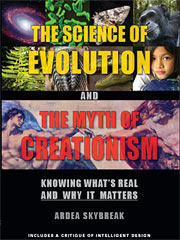Misdirection from the New York Times in the Face of the Climate Crisis: “Humans have a hard time planning ahead”
| Revolution Newspaper | revcom.us
Events like Hurricane Florence can jolt people into confronting the danger posed by global warming. They can also cause them to begin questioning the nature and legitimacy of the system of capitalism-imperialism that fuels this crisis. No wonder that one of that system’s leading propaganda organs—the New York Times—wants to point people in the wrong direction. They want you to focus on “human nature”—not the nature of the system that compels capitalists and its nation-states to compete with each other, including for cheaper sources of energy, and treats the care of the environment as an “externality” in its calculus for profit.
Their September 19, 2018 article, written by John Schwartz, “Humans Are Making Hurricanes Worse. Here’s How,” exposes how human activities are “bolstering the destructive potential of hurricanes and other extreme weather events.” It details some of the ways this society responds by either ignoring the problem or making it worse.
Then it poses a major question confronting humanity: “What explains the lack of action to stave off climate change at the global level and to address issues of resilience and adaptation at the local level?”
Its answer—and concluding take-home message, after all this exposure1 : “Long-range planning is necessary to confront the threat of climate change,” but “a fundamental human flaw” makes that impossible. “Psychologically, we’re just not designed to do that,” one climate scientist is quoted as telling the Times. “We are evolved to run away from the bear, not plan for long-term food supply.”
Designed to run away from the bear, seriously? Talk about a scientist not being scientific about humans and society!2
Actually, humans weren’t “designed” to do anything, nor was anything else in nature for that matter. Why? Because there IS no “Designer”! (This scientist’s argument, whether intentional or not, echoes the harmful and bogus theory of “intelligent design”: that it took an intelligent designer, that is, god, to create nature and human beings.)
There are, however, the natural processes of evolution. Evolution is an unconscious natural process with no “designer” or even direction or purpose guiding it. In other words, humans did not “evolve” to have certain fixed, hard-wired or immutable behaviors, including “running away from bears.” The claim that there are such fixed human behaviors is bad science—an unscientific distortion of the science of evolution. In fact, pretty early on, humans developed far better ways to protect themselves from predators and other dangers than merely running away from predators, including collectively coming together and developing ways to hunt them!
What has been scientifically proven is that evolution over millions of years has led to humans having large brains with the capacity to learn, with implications for social organization. As Ardea Skybreak explains in her book The Science of Evolution and the Myth of Creationism: Knowing What's Real and Why It Matters:
[A]n evolutionary “tweaking” and slowing down of overall rates of growth and development seems to have represented the second great evolutionary leap (the first having been the emergence of bipedalism [ upright walking]) and a key turning point on the road to becoming fully human. This change led not only to an increase in total brain size (which was considerable), but also to an increase in the length of time during which the brain could grow and develop outside the mother’s body. This seems to have been the key development which allowed for a greatly increased capacity for learning, in active interaction with the dynamic outside natural and social environment. (Page 137)
Skybreak goes on to point out that “The need for a much longer period of infant care would no doubt also have had important implications for hominid [family that includes humans and some of their closest ancestors] social organization, spurring the development of enhanced social coordination and communication within families and larger groups, and facilitating expanded teaching and learning.” (Page 137)
Skybreak emphasizes the fact that for humans, “non-biological cultural evolution has become so much more important than biological evolution” and that “In the past 100,000 years or so, our bodies (including our brains) seem hardly to have changed, and it is with the same basic biological bodies that we went from a stone tool culture to being able to cure many diseases and to explore (through the use of technology) remote parts of the cosmos. Again, all this has been accomplished primarily through cultural, not biological, evolution, though it is our very biology which made this possible in the first place.” (Pages 172-173)
It is on this basis, coming together with social coordination, that humans also learned how to plan for their long-term food supply! This began long ago in hunter-gatherer societies by storing food. Later (some 10,000 years ago), it further developed with the advent of agriculture—which was, after all, a form of planning for long-term food supplies. And there have been many scientific and technological advances since then, as human civilizations have advanced—involving significant “long-term” planning from space missions to large super-colliders for the study of building blocks of matter to advanced weaponry, the latter particularly heightened under this system.
Human beings have not “evolved” to simply run away from those challenges. We’ve developed the capacity to scientifically approach, study, and understand them, develop solutions, and decide, together with others, to take on and solve them. But there is a system standing in the way of us, collectively coming together, to resolve the global warming crisis.3 Despite talks and agreements, blocs of capital and nation-states compelled to compete with each other in this capitalist-imperialist system are not able to come together and reorient and transform their economies, including their sources of energy, to really deal with the climate crisis in the way that is urgently needed.
The system that the New York Times fundamentally represents and propagates for has no real answers or resolution for the climate crisis threatening humanity’s future. So they want you to focus on the bullshit theory of unchangeable “human nature”—not on the nature of the system we live under, or the real causes of the worsening climate crisis and what is to be done about it!
It is way past time that this system be swept off the planet through an actual revolution.
1.The irony is that in early August, the New York Times ran a magazine-length feature titled "Losing Earth: The Decade We Almost Stopped Climate Change," which chronicled the efforts of ruling forces of this society to quash the science of global warming and efforts to do something about it—at a time when it was becoming increasingly clear that global warming posed potentially existential threats to humanity. The Times feature did not necessarily draw the conclusion that it was the workings of the system that was dictating these efforts. But there is a method of exposure, common to these types of publications, which is necessary to maintain credibility among the progressive “enlightened” strata—but with a concluding “take-home” message hammered in that serves as propaganda for the capitalist-imperialist system, diverting away from its actual role. And this has to be recognized. [back]
2. See SCIENCE AND REVOLUTION: On the Importance of Science and the Application of Science to Society, the New Synthesis of Communism and the Leadership of Bob Avakian, an interview with Ardea Skybreak, pp. 1-4. [back]
3.The workings of this system in how food is produced and distributed, mediated through the preliminary transformation to capital, also pose serious obstacles to feeding all of the growing global population. This is despite the fact that there is actually sufficient resources and know-how to do so. We seriously encourage readers to read “‘Preliminary Transformation into Capital’... And Putting an End to Capitalism,” by Bob Avakian [back]

The Science of Evolution
and the
Myth of Creationism
Knowing What's Real and Why It Matters
by Ardea Skybreak
"This book will be of tremendous benefit to many..."
– Richard Leakey
Get a free email subscription to revcom.us:

Volunteers Needed... for revcom.us and Revolution
If you like this article, subscribe, donate to and sustain Revolution newspaper.

